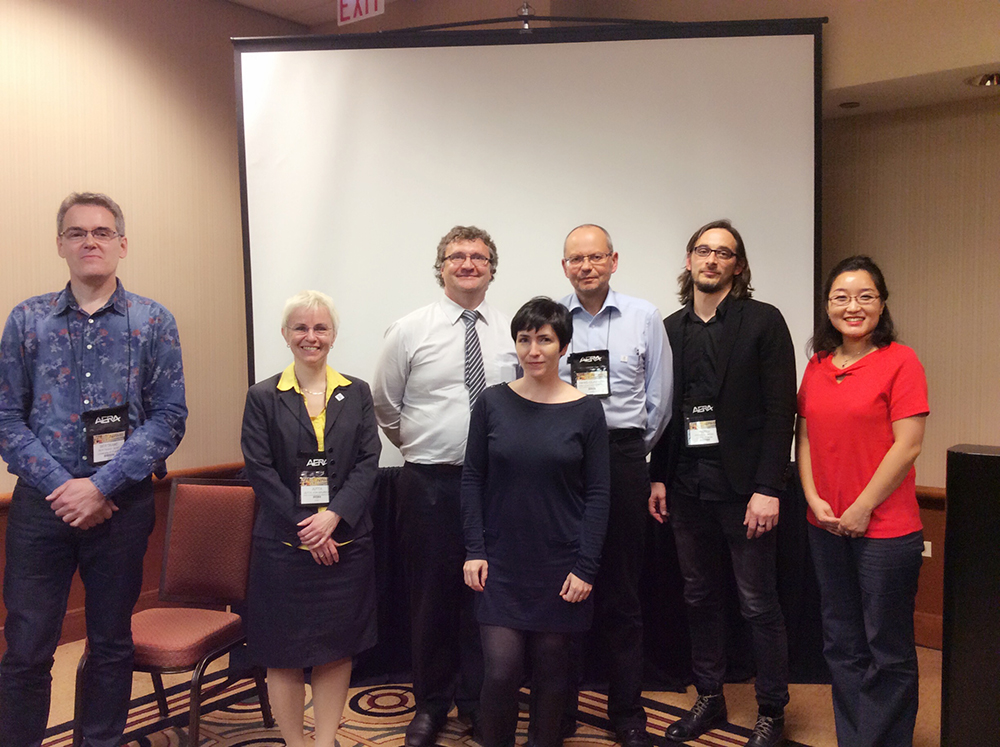
From left to right: Bertrand Geay (University of Picardie, France), Jutta von Maurice (LIfBi, Germany), Graham Daniel (University of Western Sydney, Australia), Alice Sullivan (University College London, UK), Hans-Günther Roßbach (LIfBi, Germany), Pierig Humeau (CNRS, France), Cen Wang (Charles Sturt University, Australia).
The LIfBi appeared at AERA exhibiting an information booth where education researchers met to discuss the analytical potential of NEPS and intensify their international contacts. During the session “Effects of Family Background on Educational Success” hosted by Dr. Jutta von Maurice and Prof. Dr. Hans-Günther Roßbach analyses of NEPS (Roßbach/Linberg/Bäumer: Effects of Family Background and the Home Learning Environment on Children's Competencies) were presented alongside data from the French studies ELFE (L'Etude Longitudinale Français depuis l'Enfance) and Génération 2011 (Geay/Humeau: Effects of Parents' Social and Educational Pathways on Family Education and the Early Development of Children), from the Australian study LSAC (Growing up in Australia; Daniel/Wang/Berthelsen: School-Based Parent Involvement in the Early Years of School and Academic Outcomes), and from the study BSC70 (1970 British Cohort Study) from Great Britain (Sullivan: School Origins, School Type, and Higher Education Destinations). In sum, the findings emphasized the relevance of familial learning environments—not only in terms of short-term effects during early childhood but also in terms of effects that persist throughout Kindergarten, school age, and adulthood.